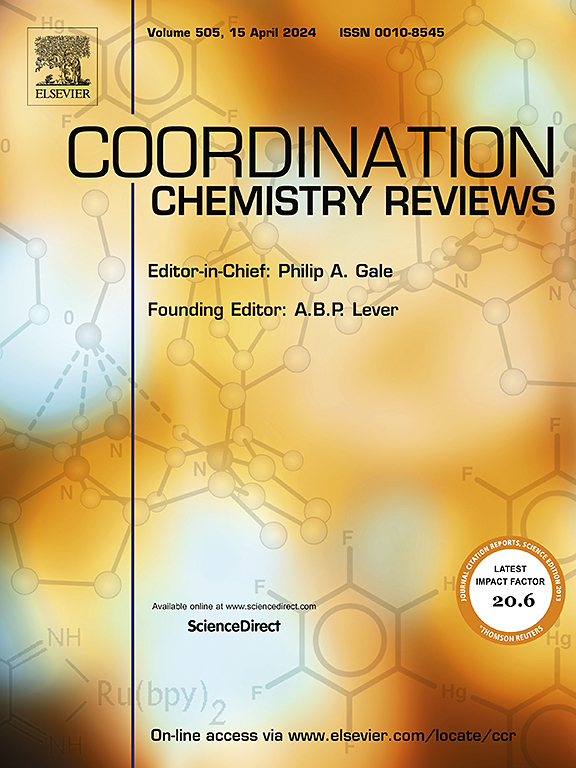控制纳米材料组装的非共价相互作用的分子工程:化学原理和材料设计
IF 23.5
1区 化学
Q1 CHEMISTRY, INORGANIC & NUCLEAR
引用次数: 0
摘要
非共价相互作用(nci)是指导纳米材料组装的关键,提供了传统共价方法所缺乏的可调节性和可逆性。本文探讨了nci驱动过程的基本热力学和动力学原理,用于设计的量子和经典力学建模,用于评估纳米材料的表征技术,以及nci的主要类别。关键主题包括配位,π-π堆叠,氢键和主客体化学,以及它们在控制组装中的相互作用。将不同的NCIs结合起来或将分子系统与使用大型数据集的先进计算技术连接起来的新兴方法也得到了强调。这项工作考察了挑战、机遇、新兴技术,并使用最复杂的建模来展示这些强大方法在不断扩大的软纳米材料领域的前景。本文章由计算机程序翻译,如有差异,请以英文原文为准。


Molecular engineering of non-covalent interactions for controlled nanomaterial assembly: Chemical principles and materials design
Non-covalent interactions (NCIs) are pivotal in directing nanomaterial assembly, offering tunability and reversibility absent in traditional covalent methods. This review explores the foundational thermodynamic and kinetic principles underlying NCI-driven processes, the quantum and classical mechanical modeling used for design, characterization techniques used in evaluating nanomaterials, and the primary classes of NCIs. Key topics include coordination, π-π stacking, hydrogen bonding, and host-guest chemistry, and their interplay in controlling assembly. Emerging approaches that combine disparate NCIs or connect molecular systems to advanced computational techniques that use large datasets are also highlighted. This work examines challenges, opportunities, emerging techniques, and the use of the most sophisticated modeling to showcase the promise of these powerful methods in the ever-expanding field of soft nanomaterials.
求助全文
通过发布文献求助,成功后即可免费获取论文全文。
去求助
来源期刊

Coordination Chemistry Reviews
化学-无机化学与核化学
CiteScore
34.30
自引率
5.30%
发文量
457
审稿时长
54 days
期刊介绍:
Coordination Chemistry Reviews offers rapid publication of review articles on current and significant topics in coordination chemistry, encompassing organometallic, supramolecular, theoretical, and bioinorganic chemistry. It also covers catalysis, materials chemistry, and metal-organic frameworks from a coordination chemistry perspective. Reviews summarize recent developments or discuss specific techniques, welcoming contributions from both established and emerging researchers.
The journal releases special issues on timely subjects, including those featuring contributions from specific regions or conferences. Occasional full-length book articles are also featured. Additionally, special volumes cover annual reviews of main group chemistry, transition metal group chemistry, and organometallic chemistry. These comprehensive reviews are vital resources for those engaged in coordination chemistry, further establishing Coordination Chemistry Reviews as a hub for insightful surveys in inorganic and physical inorganic chemistry.
 求助内容:
求助内容: 应助结果提醒方式:
应助结果提醒方式:


